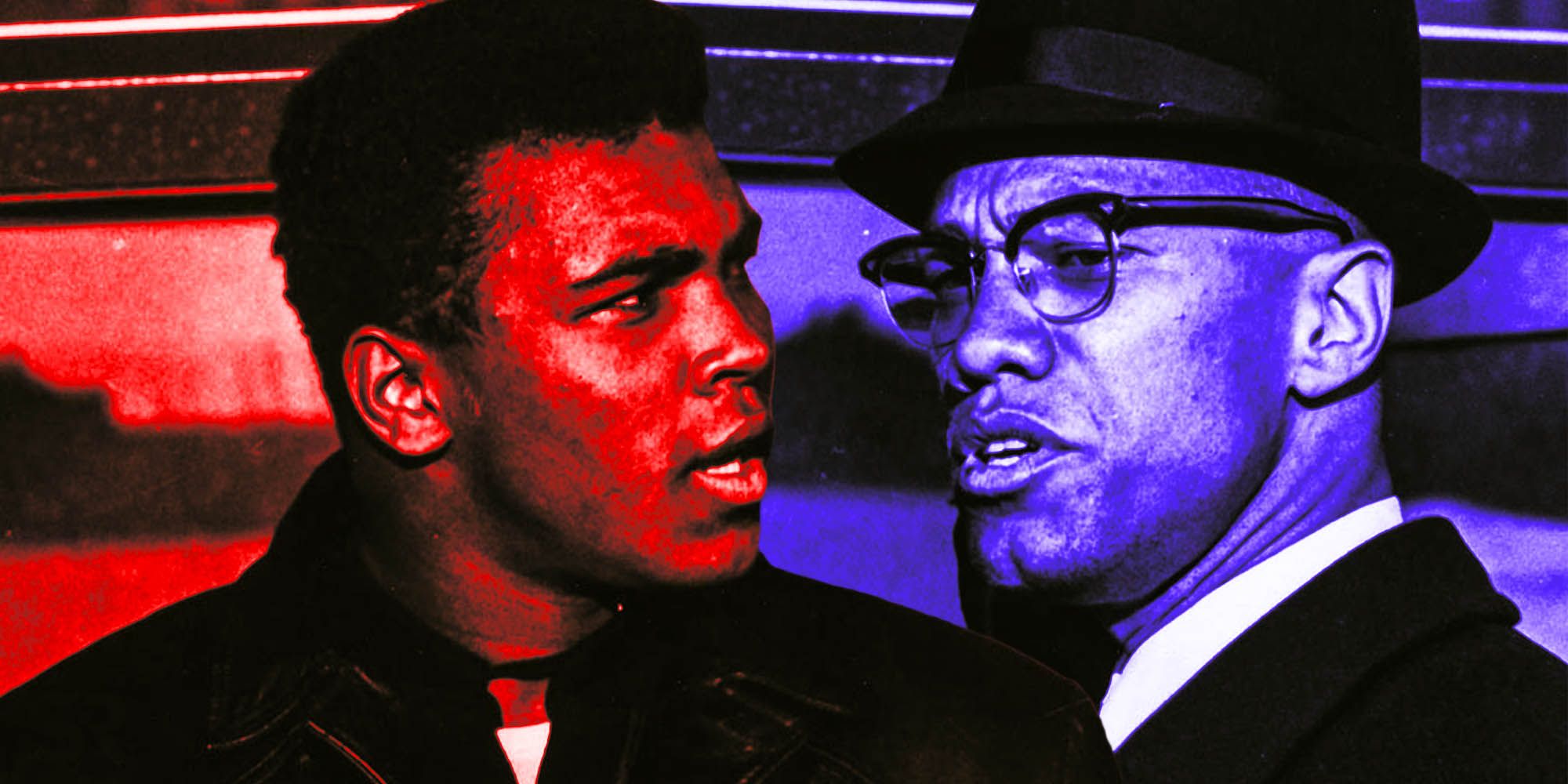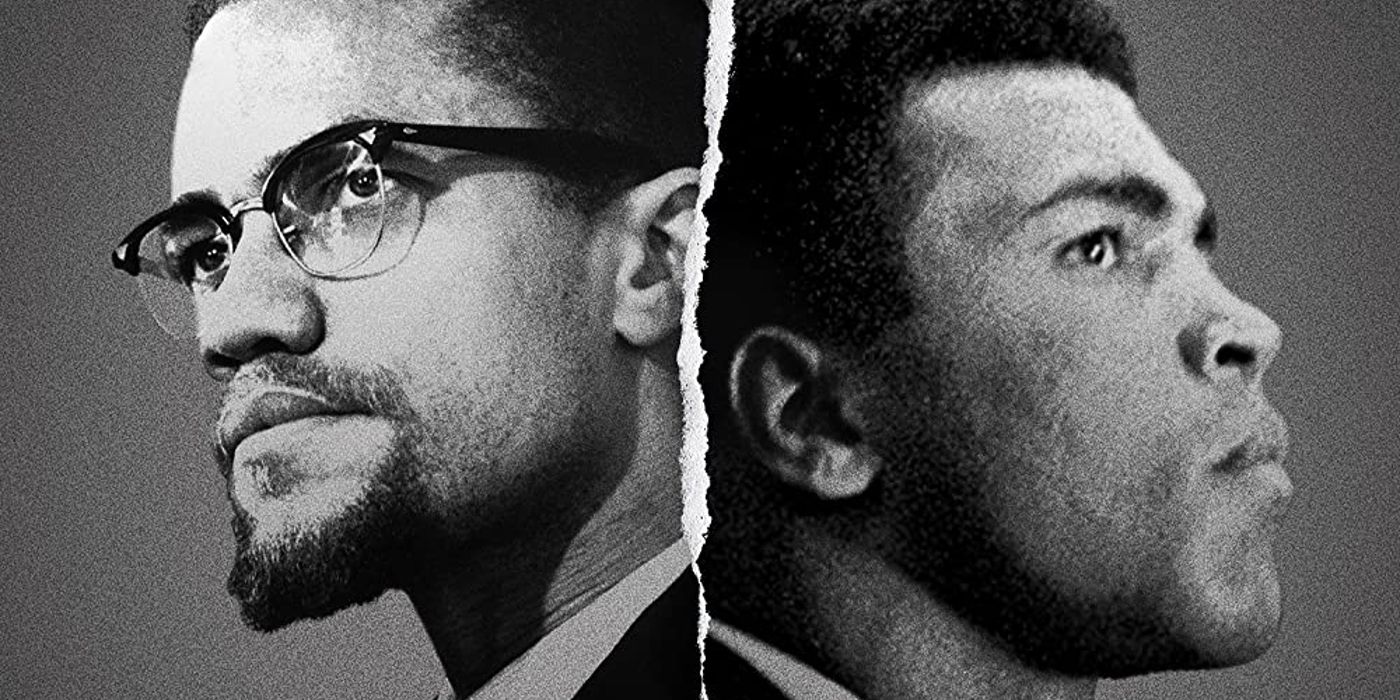Blood Brothers: Malcolm X & Muhammad Ali chronicles the relationship between its eponymous duo, which would eventually result in one of the greatest regrets of Ali's life. The pair shared a turbulent and ultimately short-lived friendship in the 1960s amidst a complex environment of popular sports and social justice. Blood Brothers sheds light on the friendship between the two American icons and illuminates the circumstances that drove them apart.
Throughout the 1950s, Malcolm X used his influence as a Muslim Minister for the Nation of Islam (under the leadership Elijah Muhammad) to promote black empowerment in the face of white supremacy in America. In the late 50s, a young Cassius Clay was boisterously and confidently rising up in the ranks in boxing, eventually winning a gold medal in the Rome 1960 Olympic games. The two met at a Nation of Islam rally in 1962 and formed a fast friendship, which would be tested by their mutual affiliation with the religious group. Malcolm’s fallout with the Nation of Islam began after he publicly expressed joy following the assassination of President John F. Kennedy in 1963. Despite the bond between Malcolm and Ali, Elijah Muhammad asked Ali not to associate with Malcolm after his excommunication from the group. Muhammad claimed that Malcolm had deviated from his teachings, and despite their bond, Ali would ultimately side with the Nation of Islam over his former friend.
Blood Brothers traces the years leading up to Ali and Malcolm’s friendship and their fallout, which ended with Malcolm’s assassination in 1965. The documentary concludes with interviews from family members of both men explaining how Ali deeply regretted his falling out with Malcolm, which is something he himself commented on in his autobiography, Soul of a Butterfly, writing: "Turning my back on Malcolm was one of the mistakes that I regret most in my life. I wish I’d been able to tell Malcolm I was sorry, that he was right about so many things. But he was killed before I got the chance." Why Ali regretted turning his back on Malcolm is not explicitly stated in the documentary. However, it is possible that Ali felt his rejection of Malcolm in favor of Elijah Muhammad contributed to Malcolm’s subsequent assassination, possibly at the hands of members of the Nation of Islam.
To this day, it is unclear who was responsible for Malcolm X's assassination, though the Nation of Islam could have orchestrated his death in retaliation to Malcolm speaking out against their leader. Prior to his assassination, Malcolm had received death threats from members of the Nation of Islam group. While it is possible that the Nation of Islam was ultimately responsible(the men arrested were members of the Nation of Islam), there are suspicions of the FBI's involvement surrounding Malcolm's death.
The final minutes of Blood Brothers offer insight into how Ali felt about his friendship with Malcolm. Malcolm’s eldest daughter spoke at Ali’s memorial service in 2016 about meeting Ali years after the assassination and recognizing his grief at having abandoned Malcolm before his death, and Ali would eventually sever ties with the Nation of Islam. Blood Brothers pays homage to the tragic friendship between these men, ensuring that if the viewer is left with one concept, it is that Muhammad Ali loved Malcolm X like a brother and regretted betraying his friend for the rest of his life.


